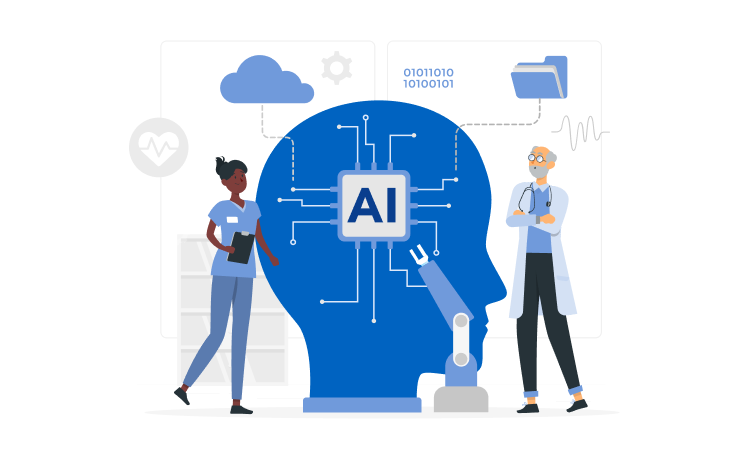Taming Your EHR Data
Discover effective strategies to manage and organize your EHR data efficiently.
Understanding the Importance of EHR Data Management
Effective management of EHR data is crucial for healthcare organizations to ensure the smooth operation of their systems and provide quality patient care. EHR data contains valuable information about patients' medical history, diagnoses, treatments, and other relevant healthcare information.
By properly managing EHR data, healthcare professionals can easily access and analyze patient information, leading to more accurate diagnoses, personalized treatment plans, and improved overall healthcare outcomes.
Moreover, EHR data management plays a vital role in facilitating information exchange between healthcare providers, ensuring seamless collaboration and continuity of care for patients, especially in multi-disciplinary healthcare settings.
Overall, understanding the importance of EHR data management is essential for healthcare organizations to optimize their operations, improve patient care, and enhance healthcare outcomes.
Challenges in Handling EHR Data
While EHR data offers numerous benefits, handling and managing it can present significant challenges for healthcare organizations.
One of the main challenges is the sheer volume of data generated by EHR systems. Healthcare organizations need robust infrastructure and storage solutions to handle and store large amounts of data effectively.
Data quality and accuracy are also critical challenges in EHR data management. Inaccurate or incomplete data can lead to medical errors, misdiagnoses, and compromised patient safety. Implementing data validation processes and ensuring data integrity is vital to overcome these challenges.
Another challenge is the interoperability of EHR systems. Different healthcare providers may use different EHR systems that may not seamlessly integrate with each other, leading to data fragmentation and difficulties in sharing patient information. Standardizing data formats and implementing interoperability frameworks can help address this challenge.
Furthermore, privacy and security concerns are significant challenges in EHR data management. Healthcare organizations must ensure that patient data is protected from unauthorized access, breaches, and data loss. Implementing robust security measures, such as encryption, access controls, and regular data backups, is crucial to safeguard patient information.
Addressing these challenges requires healthcare organizations to adopt efficient strategies and technologies for handling and managing EHR data effectively.
Best Practices for Organizing EHR Data
Organizing EHR data in a structured and standardized manner is essential for efficient data management and retrieval.
One best practice is to establish a data governance framework that defines policies, procedures, and responsibilities for managing EHR data. This includes establishing data entry standards, data quality assurance processes, and data stewardship roles.
Another best practice is to categorize and tag EHR data using standardized terminologies and coding systems. This allows for easier searching, filtering, and analysis of patient information across different EHR systems and healthcare settings.
Creating templates and standardized forms for data entry can also improve data organization and consistency. These templates can guide healthcare professionals in capturing the required data elements accurately and consistently, reducing errors and improving data quality.
Regular data audits and reviews are essential to identify and correct any data inconsistencies, errors, or omissions. This ensures that the EHR data remains accurate, up-to-date, and reliable for clinical decision-making.
Lastly, investing in user-friendly EHR systems with intuitive interfaces and efficient search functionalities can greatly enhance the organization and accessibility of EHR data.
By implementing these best practices, healthcare organizations can streamline their EHR data management processes and improve the overall quality and usability of the data.
Utilizing Technology for EHR Data Management
Technology plays a crucial role in effectively managing and leveraging EHR data.
One technology that can greatly assist in EHR data management is data analytics. By applying advanced analytics techniques to EHR data, healthcare organizations can gain valuable insights into patient populations, disease patterns, treatment outcomes, and other healthcare trends. These insights can inform clinical decision-making, improve care coordination, and support population health management.
Artificial intelligence (AI) and machine learning (ML) algorithms can also be utilized to automate tasks such as data entry, data validation, and data analysis. These technologies can reduce manual effort, improve accuracy, and accelerate data processing, enabling healthcare professionals to focus more on patient care.
Additionally, cloud computing offers scalable and secure storage solutions for EHR data. Cloud-based EHR systems provide flexibility, accessibility, and data redundancy, ensuring that healthcare organizations can access their data anytime, anywhere, with minimal downtime or data loss.
Furthermore, interoperability solutions, such as health information exchange (HIE) platforms and application programming interfaces (APIs), enable seamless sharing and exchange of EHR data between different healthcare providers and systems. These technologies facilitate care coordination, improve care transitions, and enhance the overall patient experience.
By leveraging these technologies, healthcare organizations can harness the full potential of their EHR data, streamline their data management processes, and unlock valuable insights for better patient care and healthcare outcomes.
Ensuring Data Security and Compliance
Data security and compliance are paramount considerations in EHR data management.
Healthcare organizations must implement robust security measures to protect EHR data from unauthorized access, breaches, and data loss. This includes encrypting sensitive data, implementing access controls, and regularly monitoring and auditing data access and usage.
Compliance with regulations and standards, such as the Health Insurance Portability and Accountability Act (HIPAA), is also crucial. Healthcare organizations must ensure that their EHR data management practices adhere to the necessary privacy and security requirements outlined in these regulations.
Regular data backups and disaster recovery plans are essential to mitigate the risk of data loss and ensure business continuity in the event of system failures or natural disasters.
Furthermore, healthcare organizations should conduct regular security assessments and vulnerability scans to identify and address any potential security risks or weaknesses in their EHR systems.
By prioritizing data security and compliance, healthcare organizations can instill patient trust, protect sensitive information, and maintain the integrity and confidentiality of their EHR data.



